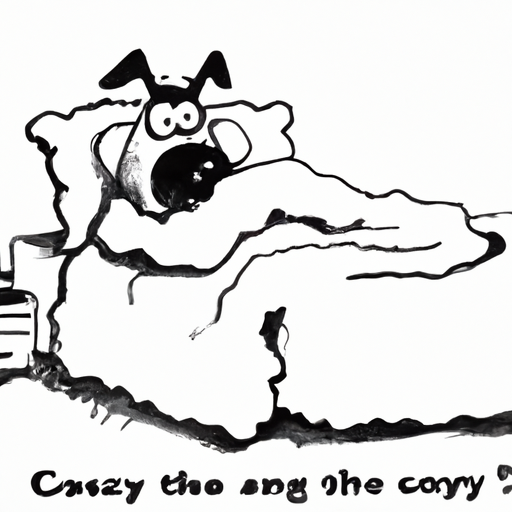We love our furry friends, and we love to understand them. You might have noticed your pooch pawing at their beds or the couch before settling down for a snooze. It’s a quirky yet common behavior in dogs and is often met with puzzled looks from their human companions. But why do dogs dig their beds? Let’s delve into the details.
Table of Contents
- The Root Cause
- Instinctual Behavior
- Seeking Comfort
- Marking Territory
- Hiding Valuables
- How to Manage the Habit
- Frequently Asked Questions
Key Takeaways
– Dogs dig beds due to instinctual behaviors passed down from their wild ancestors.
– They may be trying to seek comfort, mark their territory, or hide their valuables.
– While bed digging isn’t harmful, it can become a problem if it damages your furniture or disturbs your sleep.
The Root Cause
To better understand why dogs dig beds, we need to turn back the clock and examine their wild ancestors. Dogs are descendants of wolves, and many behaviors that seem odd to us are simply relics of their wild past. Researchers at the Smithsonian’s National Zoo have observed similar digging behaviors in wolves, suggesting this is an instinctual habit.
Instinctual Behavior
In the wild, wolves dig holes for several reasons. This behavior has been passed down to our domestic canines who exhibit this trait without the same necessities driving it. Here are some reasons why dogs might engage in this behavior:
-
Thermal Regulation: Wolves dig holes to create a comfortable place to sleep that’s protected from extreme weather conditions. Your dog might be trying to achieve the same comfort level by digging into their bed.
-
Safety Measure: Wolves also dig holes to hide from predators. While your dog isn’t likely to encounter a wild predator in your living room, the instinct to seek safety remains.
Seeking Comfort
Just like we fluff our pillows before bedtime, dogs might dig their beds to create a cozy spot. They could be trying to rearrange their blankets or bed padding to get comfortable. This behavior is more common in dogs with orthopedic problems as they might be trying to alleviate discomfort.
Marking Territory
Dogs have scent glands in their paws which release pheromones. When they dig, they’re marking their territory. This is a way for them to communicate to other dogs that this bed belongs to them. If you have multiple dogs, you might notice this behavior more frequently.
Hiding Valuables
In the wild, dogs bury food to protect it from being stolen by other animals. This instinctual behavior can manifest in your dog digging their bed to hide their treasured toys or treats. Check out this article for more on this behavior.
How to Manage the Habit
While it’s generally harmless, bed digging can become a problem if it leads to destructive behavior or disrupts your sleep. Here are some tips on managing this habit:
-
Provide a Suitable Digging Spot: If your dog loves to dig, consider creating a safe place for them to do so. A designated digging spot in your yard or a dig box can be a great solution.
-
Ensure Their Comfort: If they’re digging for comfort, make sure their bed is soft and cozy. Orthopedic dog beds can be particularly helpful for older dogs or those with joint issues.
-
Satisfy Their Chewing Needs: If they’re digging to hide their toys, make sure they have durable chew toys that satisfy their natural urge to chew.
For more tips on managing your dog’s behaviors, check out this guide.
Frequently Asked Questions
1. Is bed digging a sign of anxiety in dogs?
While digging can be a sign of anxiety, it’s usually a normal behavior. However, if your dog is showing other signs of anxiety, such as excessive licking or pacing, it’s best to consult a veterinarian.
2. How can I stop my dog from digging the couch?
Providing a designated digging spot can help. Also, training methods like positive reinforcement can be effective. Consider consulting a professional dog trainer if the behavior persists.
3. Should I punish my dog for digging?
Punishment is rarely the best solution. Instead, try to understand the cause of the behavior and address it appropriately.
In conclusion, dogs dig beds for various reasons, typically linked to their instinctual behaviors. It’s a normal behavior that can be managed with understanding and patience. And remember, these behaviors are part of what makes our dogs so endearing and unique. As dog lovers, it’s our job to understand and accommodate these behaviors while ensuring they live happy, healthy lives.



